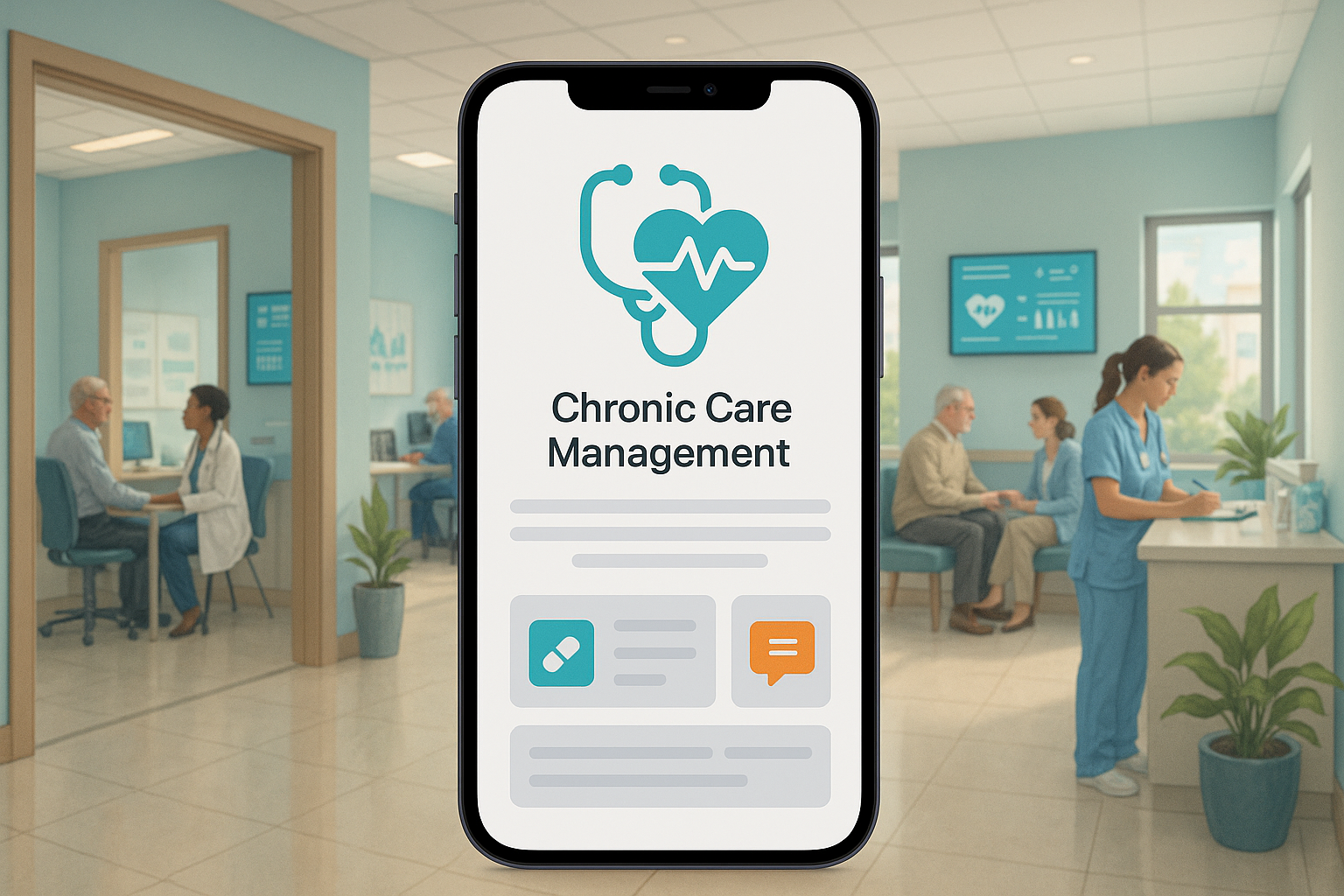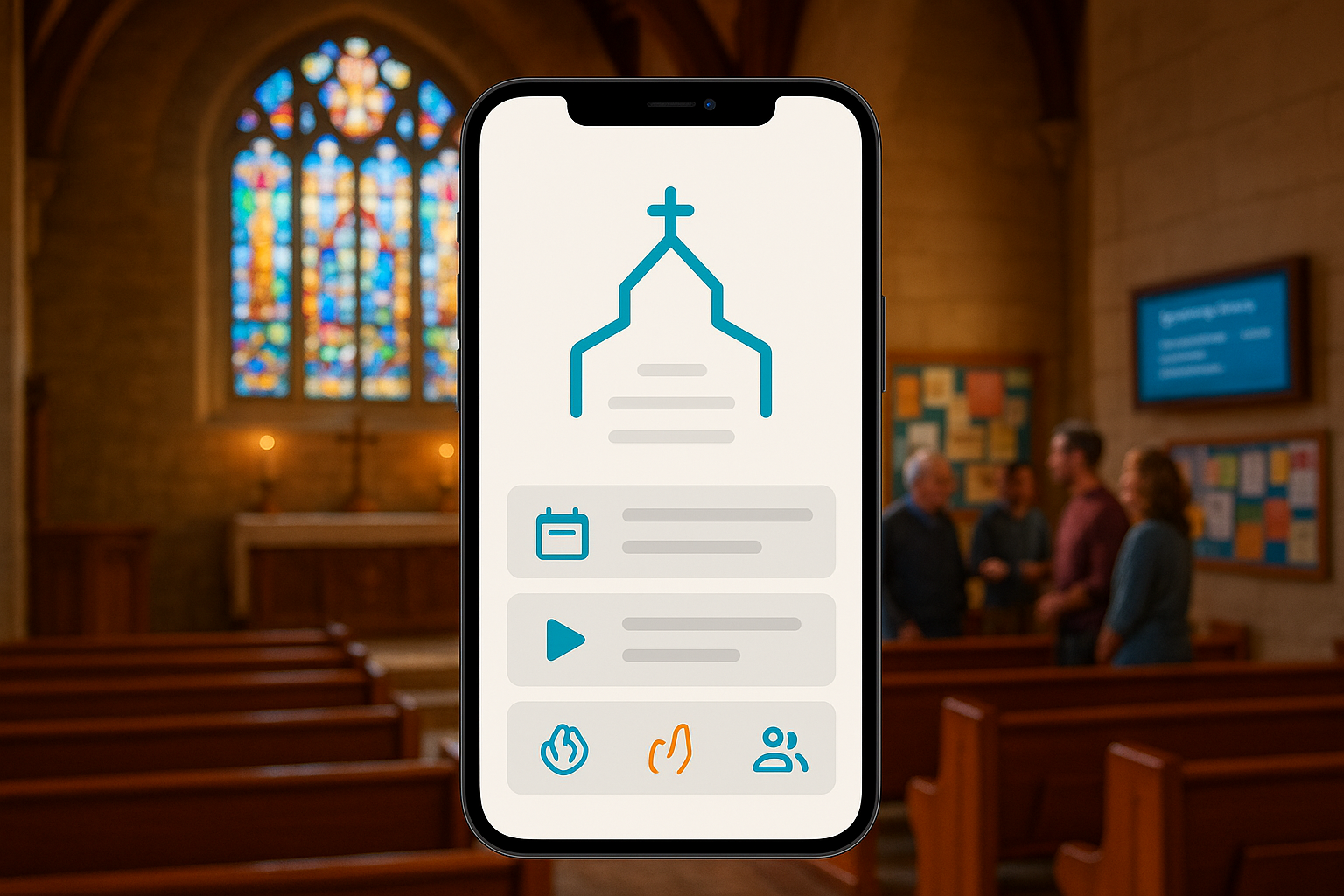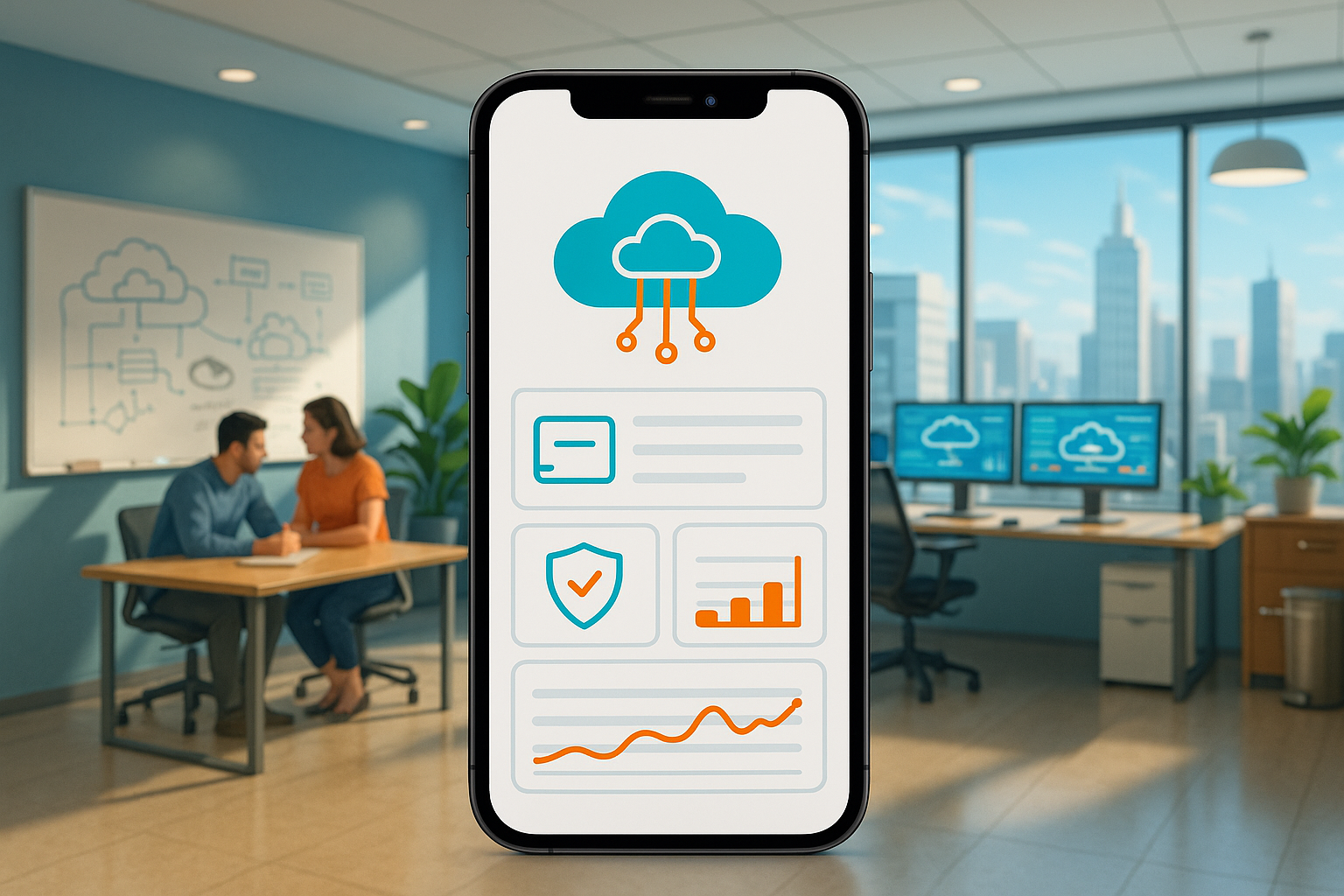Introduction
The rise of chronic diseases presents one of the most significant challenges to modern healthcare systems. Managing conditions like diabetes, heart disease, and COPD requires continuous, coordinated care that extends beyond the walls of a clinic. This is where Chronic Care Management (CCM) apps have emerged as a transformative tool, bridging the gap between patients and providers. However, developing a CCM app is a formidable task. It demands a deep understanding of stringent regulatory frameworks like HIPAA, the technical prowess to integrate seamlessly with complex Electronic Health Record (EHR) systems, and the design acumen to create an intuitive experience for both patients and clinicians.
Attempting to build such a sophisticated application in-house can quickly overwhelm even well-resourced healthcare organizations, diverting focus and funds from their primary mission of patient care. The path is fraught with potential pitfalls, from security vulnerabilities to clunky user interfaces that hinder adoption.
This guide is designed to navigate the complexities of CCM app development. We will explore what these applications are, why they are so challenging to build, the different forms they can take, and what you can expect in terms of development costs. Most importantly, we will introduce the top development companies that can turn your vision into a reality, including our team here at MetaCTO. As a top US AI-powered mobile app development firm with over 20 years of experience, we specialize in transforming ambitious ideas into secure, scalable, and successful applications. This article will show you how to build your CCM app the right way, from day one.
What is a Chronic Care Management App?
A Chronic Care Management (CCM) app is a specialized software application designed to help healthcare providers and patients collaboratively manage long-term health conditions. Far more than a simple symptom tracker, a CCM app serves as a central hub for communication, data collection, and care coordination. Its primary goal is to empower patients in their day-to-day health management while providing clinicians with the real-time data and tools necessary to deliver proactive, personalized care.
The foundation of any effective CCM program is its integration with Electronic Health Record (EHR) systems. In fact, according to ChartSpan, EHR systems are a requirement for CCM programs. A CCM app or its underlying software platform must integrate directly with a provider’s EHR. This integration is what enables the seamless sharing of patient information across the entire care team—from primary care physicians to specialists to care coordinators. When a patient logs their blood pressure, a new symptom, or medication adherence, that data can be pushed directly to their official health record.
This ensures two critical outcomes:
- Continuously Updated Health Information: The patient’s record is always current, reflecting their real-world condition between office visits.
- Consistent Data for the Care Team: Every member of the care team has access to the same up-to-date information, which improves care coordination, supports quality assurance, and prevents dangerous miscommunications.
Beyond data integration, CCM software provides healthcare organizations with the essential technological resources and tools needed to manage patient care efficiently. For example, ChartSpan’s RapidBill™ software is a feature that can streamline the complex billing processes associated with chronic care management services, ensuring providers are compensated for their work. In essence, a well-designed CCM app enhances operational efficiency, improves patient outcomes, and strengthens the relationship between patients and their care teams.
Reasons It Is Difficult to Develop a Chronic Care Management App In-House
While the benefits of a custom CCM app are clear, the journey of developing one in-house is laden with significant technical, regulatory, and logistical challenges. These hurdles often make partnering with a specialized development agency a more strategic and cost-effective approach.
Navigating Stringent HIPAA Compliance
The Health Insurance Portability and Accountability Act (HIPAA) governs the security and privacy of Protected Health Information (PHI). Building an app that handles PHI requires an exhaustive understanding of HIPAA’s Security and Privacy Rules, which dictate everything from data encryption standards to access controls and audit trails.
A single misstep can lead to severe penalties, data breaches, and a catastrophic loss of patient trust. For example, the legal team at the University of Chicago Health Plan (UCHP) raised concerns about using simple text messaging for patient communication because it is not considered a HIPAA-secure medium, as noted in a case study by PMC. This illustrates the level of scrutiny required for every feature. An in-house team without dedicated compliance and cybersecurity experts risks building a non-compliant product from the ground up, leading to costly rework or even project abandonment.
The Technical Challenge of EHR Integration
As established, seamless EHR integration is non-negotiable for a functional CCM app. However, the healthcare IT landscape is notoriously fragmented. Dozens of EHR vendors exist, each with its own proprietary APIs, data formats (like HL7 and FHIR), and integration protocols.
Building and maintaining these integrations requires a highly specialized skill set. An in-house team would need engineers who are not only proficient in mobile development but also deeply experienced in health informatics and specific EHR systems like Epic, Cerner, or Allscripts. This talent is rare and expensive. Without this expertise, an organization could end up with an app that operates in a silo, defeating the entire purpose of streamlined data sharing and creating more work for clinicians through manual data entry. This is a primary reason why EHR integration is cited as a key feature that a vendor should offer to ensure operational efficiency.
High Development and Maintenance Costs
Building a CCM app is not a one-time project. It requires a significant upfront investment in a dedicated team of:
- Project Managers
- UI/UX Designers
- iOS and Android Developers
- Backend Engineers
- Quality Assurance (QA) Testers
- Cybersecurity and Compliance Experts
Beyond the initial build, the app requires continuous maintenance, updates to comply with new operating system versions, security patching, and server management. These ongoing operational costs can be substantial and unpredictable, straining an organization’s IT budget.
How a Development Agency Like MetaCTO Can Help
Partnering with a specialized firm like MetaCTO mitigates these challenges. We bring over 20 years of experience in custom mobile app development, including projects in highly regulated industries.
- Built-in Expertise: Our team includes experts in secure, compliant app architecture. We understand the nuances of HIPAA and build security into the foundation of your app, not as an afterthought.
- Integration Prowess: We have the technical know-how to tackle complex third-party integrations, including EHR systems, ensuring your app communicates effectively with your existing clinical workflows.
- Cost-Efficiency and Speed: Instead of you needing to hire a full-time, in-house team, we provide a complete, experienced team ready to start immediately. Our Rapid MVP Development service can deliver a market-ready product in as little as 90 days, allowing you to validate your concept and secure user feedback without a massive upfront investment.
- Full-Cycle Partnership: We don’t just build your app; we partner with you to grow and evolve it. From initial strategy and design to launch, monetization, and scaling, we provide expert guidance at every stage.
By outsourcing development, healthcare organizations can focus on what they do best—providing excellent patient care—while entrusting the complex technical work to a dedicated partner.
Different Types of Chronic Care Management Apps
The world of chronic disease management apps is diverse, with solutions tailored to a wide range of conditions and patient needs. While some apps offer comprehensive management, others focus on specific symptoms or lifestyle factors. According to DelveInsight, these apps can be broadly categorized.
Disease-Specific Management Apps
These applications are designed to help patients manage a single chronic condition. They often include specialized trackers, educational content, and tools relevant to that specific illness.
- Asthma Apps: Allow users to maintain a journal of their asthma activity, medications, and environmental triggers. Some are even FDA-approved technologies that help individuals regulate their symptoms.
- COPD Apps: Can provide complete online pulmonary rehabilitation programs and tools for managing symptoms.
- Cancer Support Apps: Apps designed for people with specific cancers, like Non-Small Cell Lung Cancer (NSCLC), help in recording crucial information and tracking daily symptoms and side effects.
- Seizure Tracking Apps: Designed to help individuals manage epilepsy by tracking seizures, potential triggers, and medication schedules.
Symptom and Lifestyle Tracking Apps
These apps focus on monitoring specific metrics or symptoms that are common across many chronic conditions. They empower users to identify patterns and correlations between their activities and their well-being.
- Pain Management Apps: Include chronic pain trackers and medical mobile apps that allow users to log the intensity, location, and nature of their pain.
- Symptom Tracker Apps: General-purpose tools for tracking a variety of symptoms like fatigue, pain, and other effects of acute and chronic illnesses. This category also includes autoimmune symptom trackers.
- Sleep Quality Apps: These apps can track and analyze a user’s sleep cycle to help improve rest quality, which is crucial for managing many chronic conditions.
- Blood Pressure Monitors: Apps that measure and monitor blood pressure, often syncing with connected hardware.
- Weight Loss Trackers: Simple apps that help users monitor their weight, an important factor in managing conditions like diabetes and heart disease.
Mental and Holistic Health Apps
Recognizing the strong link between mental and physical health, many apps focus on psychological well-being as part of chronic disease management.
- Mental Health Apps: Tools designed to help manage mental health through features like mood tracking, journaling, and documenting daily activities to identify emotional patterns.
- Cognitive Behavioral Therapy (CBT) Apps: Self-guided apps that use CBT skills and positive psychology to encourage users to connect with their thoughts and feelings in a constructive way.
General Health and Emergency Apps
This category includes apps that provide broad utility for health management or critical assistance.
- Medication Management Apps: Mobile health apps focused on reminding users to take their medications, tracking adherence, and providing information about their prescriptions.
- Emergency Response Apps: Innovative apps that connect users with CPR-trained community members in the event of a cardiac emergency and direct them to the nearest automated external defibrillator (AED).
- Medical Information Apps: Fundamental apps that act as a digital medical ID, allowing users to save pertinent medical information for easy access by first responders or new providers.
This wide variety shows that there is no one-size-fits-all solution for chronic care management. The best app is one that is tailored to the specific needs of the patient population it aims to serve.
Cost Estimate for Developing a Chronic Care Management App
Estimating the cost of developing a CCM app requires considering its complexity, features, and the level of customization required. Based on industry analysis from Arka Softwares, we can outline a general cost structure.
Simpler, Feature-Focused Apps
For a more straightforward healthcare app, such as a medication reminder app like Medisafe, the development cost typically ranges from $30,000 to $70,000. The final price within this range depends on the scope of its features, which might include:
- Medication tracking and scheduling
- Customizable reminder notifications
- Adherence reports
- Integration with pharmacies for refills
These apps are essential for patients managing chronic conditions but are generally less complex than comprehensive disease management platforms.
Specialized, Data-Intensive Apps
For a more specialized healthcare app designed for a specific chronic condition, such as MySugr for diabetes management, the cost is generally higher, ranging from $40,000 to $100,000 or more.
The increased cost is driven by the complexity and customization of the features needed to provide meaningful value. These can include:
- Integration with medical devices (e.g., blood glucose meters) via Bluetooth.
- Advanced data logging for meals, insulin doses, and activity.
- Data analysis and visualization to show trends.
- Personalized feedback and reporting for both the patient and their endocrinologist.
- HIPAA-compliant data storage and sharing capabilities.
Factors Influencing the Final Cost
It’s important to understand that these are estimates. The final investment will be determined by several factors, including:
- Platform Choice: Developing for both iOS and Android natively will cost more than using a cross-platform framework.
- Backend Infrastructure: The complexity of the server, database, and APIs needed to support the app.
- Third-Party Integrations: Each integration (EHRs, pharmacies, labs, wearables) adds to the development timeline and cost.
- Compliance and Security: The level of security and the work needed to ensure full HIPAA compliance.
- Design Complexity: A highly customized and polished UI/UX will require more design and development hours.
At MetaCTO, we work with you to define a clear product roadmap that aligns with your budget. By focusing on a Minimum Viable Product (MVP), we can help you launch an app with core functionalities quickly and cost-effectively. This approach allows you to test your concept with real users and attract investment before committing to a full-featured build.
Top Chronic Care Management App Development Companies
Choosing the right development partner is the most critical decision you will make. You need a team with the technical expertise, industry knowledge, and strategic vision to build a successful and compliant CCM app. Below is a review of top companies in the space, starting with our approach at MetaCTO.
1. MetaCTO
As a leading AI-powered mobile app development agency, we at MetaCTO are uniquely positioned to tackle the most complex challenges in healthcare technology. We don’t just write code; we build, grow, and monetize mobile apps, serving as a long-term strategic partner from concept to launch and beyond. Our 20 years of experience have been dedicated to transforming ambitious ideas into market-leading products that deliver real value to users and a strong return on investment for our clients. Our expertise is trusted by major brands and high-growth startups alike.
Our approach to CCM app development is holistic. We understand that a successful app must satisfy the needs of patients, providers, and healthcare administrators. It must be engaging, clinically effective, and seamlessly integrated into existing workflows. We leverage our deep expertise in AI development to build intelligent features like personalized patient coaching and predictive analytics, setting your app apart in a competitive market.
| Feature | MetaCTO |
|---|---|
| Key Strengths | AI-Enabled Mobile App Development, Rapid 90-Day MVP, Full-Cycle Partnership (Strategy, Build, Growth, Monetization), Fractional CTO Services, Proven Success in Fundraising and Market Launch |
| Services | Custom Mobile App Development, AI & ML Model Integration, App Store Optimization (ASO) & Growth, Project Rescue, Monetization Strategy |
| Why We’re a Top Choice | We combine deep technical expertise with a sharp business focus. Our 90-day MVP process de-risks your investment, while our full-cycle services ensure your app not only launches but thrives. We are experts at navigating the complexities of regulated industries to deliver secure, scalable, and highly engaging applications. |
2. CareCloud
CareCloud stands out with its intuitive platform designed to revolutionize chronic care management. With a strong history dating back to 1999, the company delivers innovative solutions that prioritize both healthcare providers and patients. According to CareCloud, its commitment is to excellence in a market seeking superior solutions.
| Established | 1999 |
| Employees | 4000+ |
| Revenue | $88.6 Million |
| Pros | Advanced Integration Capabilities, Intuitive User Interface, Comprehensive Patient Data Tracking |
| Cons | Some users have reported slow customer support. |
3. HUMHEALTH
HUMHEALTH brings precision to chronic care management by providing solutions that prioritize personalized patient care. Established in 2015, the company is known for its commitment to excellence, offering a comprehensive platform that addresses the unique needs of individuals with chronic conditions.
| Established | 2015 |
| Employees | 11-50 |
| Revenue | $5 Million |
| Pros | Precision in Patient Care, Comprehensive Platform, Personalized Solutions |
| Cons | Reported integration issues, redundant features, can be difficult to navigate for some users. |
4. Greenway Health
Greenway Health is dedicated to “greening the way to health and wellness.” Its chronic care management solutions emphasize environmental consciousness while delivering state-of-the-art technology for healthcare providers. The company aims to ensure a sustainable approach to patient care.
| Established | 2013 |
| Employees | 1000-5000 |
| Revenue | $134.8 Million |
| Pros | Emphasizes environmental consciousness, delivers state-of-the-art solutions, ensures a sustainable approach to patient care. |
| Cons | History of a False Claims Settlement, experiences frequent crashes. |
5. Optimize Health
Optimize Health is committed to optimizing health for a better future within the healthcare market. The company focuses on innovative solutions and continuous improvement, positioning itself as a trusted ally for healthcare providers looking to elevate their chronic care management strategies.
| Established | 2015 |
| Employees | 51-200 |
| Revenue | $12.8 Million |
| Pros | Innovative Solutions, Continuous Improvement, Comprehensive Chronic Care Management. |
| Cons | Reported billing difficulties, can be glitchy and difficult to use. |
6. Prevounce
Prevounce empowers healthcare providers with a platform that goes beyond traditional care management. Its progressive approach aims to transform lives through proactive and preventive strategies, setting a new standard in chronic care.
| Established | 2016 |
| Employees | 11-50 |
| Revenue | $1.1 Million |
| Pros | Proactive and Preventive Approach, Patient-Centric Solutions, Transformative Impact. |
| Cons | Slow and lagging interface, limited EMR integration. |
7. HealthArc
HealthArc describes itself as the pathway to holistic healthcare. It supplies a platform encompassing all aspects of chronic care management, with a focus on patient well-being that makes it a reliable and comprehensive solution for healthcare providers.
| Established | 2019 |
| Employees | 11-50 |
| Revenue | $53.7 Million |
| Pros | Comprehensive Healthcare Solutions, Patient-Centric Approach, Integration of All Aspects of Chronic Care. |
| Cons | Can have costly pricing structures. |
8. WellSky Home Health
WellSky Home Health excels in bridging care beyond boundaries. Established in 1980, its platform is designed to facilitate seamless communication and collaboration, offering healthcare providers the tools they need to extend care beyond traditional settings.
| Established | 1980 |
| Employees | 1000-5000 |
| Revenue | $327.1 Million |
| Pros | Seamless Communication and Collaboration, Extended Care Beyond Traditional Settings, User-Friendly Platform. |
| Cons | Reports of bugs, issues with updates, and slow customer support. |
Conclusion
Developing a Chronic Care Management app is a high-stakes endeavor with the potential to dramatically improve patient outcomes and streamline healthcare delivery. As we’ve explored, the journey involves far more than just coding. It requires a nuanced understanding of clinical workflows, a mastery of complex EHR integrations, and unwavering adherence to the strict security and privacy mandates of HIPAA.
Throughout this guide, we have detailed what CCM apps are, examined the significant difficulties of building them in-house, surveyed the diverse landscape of app types, and provided realistic cost estimates. We also reviewed some of the top companies in the field, each with its own set of strengths and weaknesses.
The central takeaway is that success in this space demands a specialized partner. The challenges of compliance, integration, and user engagement are too great to leave to chance. At MetaCTO, we have spent two decades building the expertise and processes needed to navigate this complex terrain. Our full-cycle approach—from validating your idea with a 90-day MVP to growing your user base and monetizing your platform—is designed to transform your vision into a thriving digital product. We don’t just build apps; we build businesses.
If you are ready to create a Chronic Care Management solution that makes a real difference, let’s start the conversation.
Talk with a Chronic Care Management app development expert at MetaCTO today.






